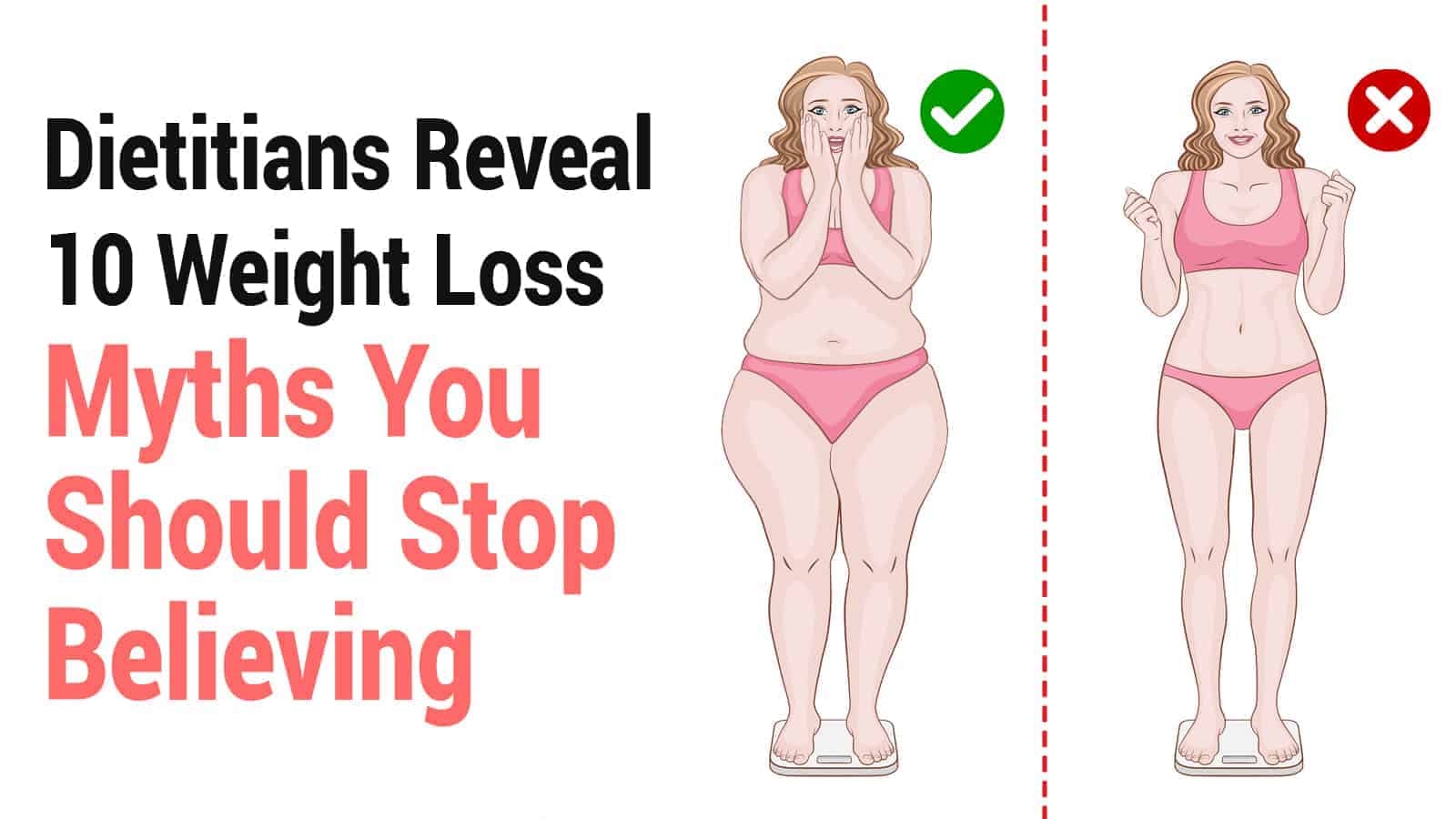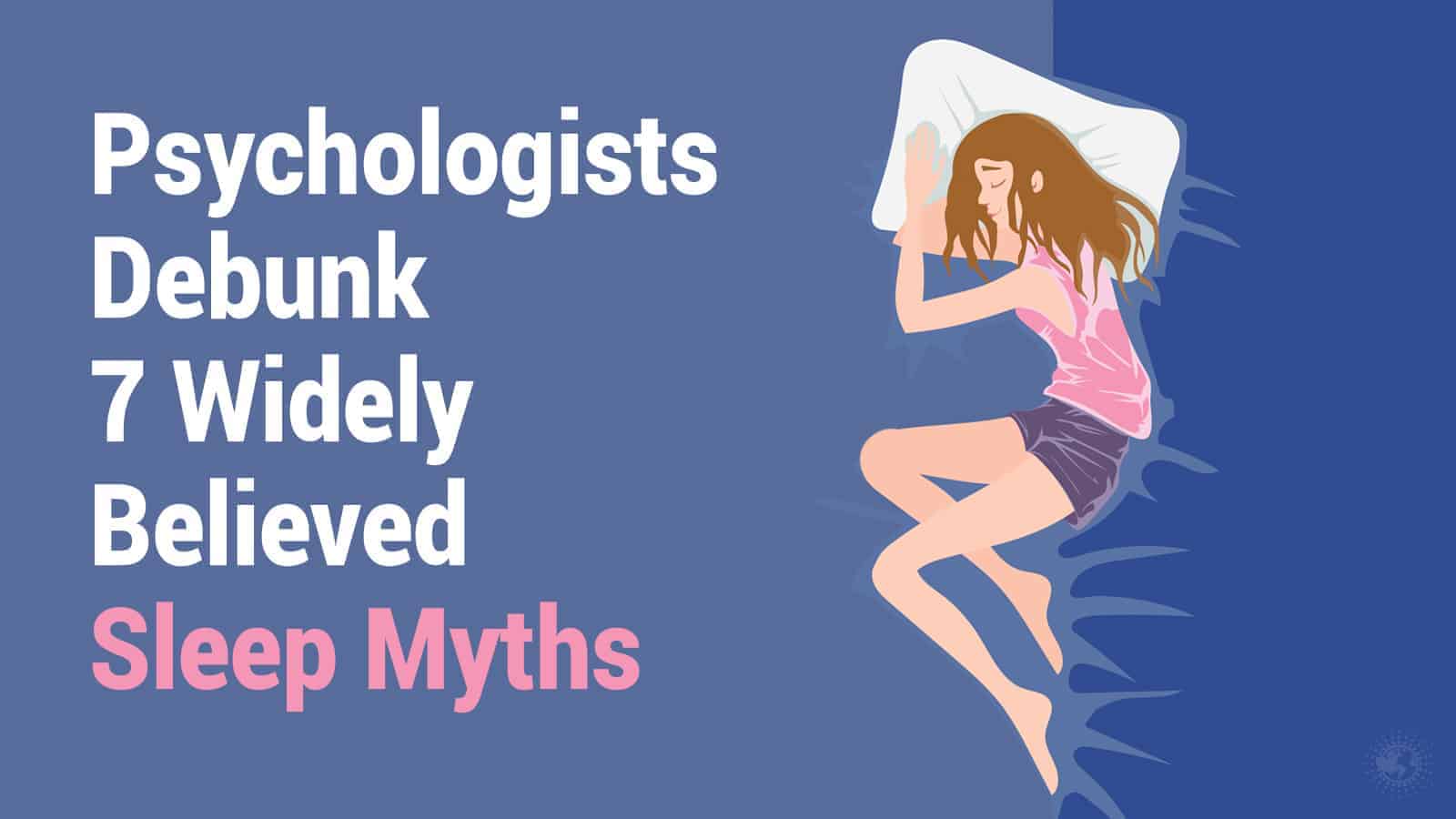Are you tired of the endless weight loss myths confusing you on what you genuinely need to do to get healthy? The diet industry rakes in more than $72 billion each year, and everyone seems to have an idea of what you should do or a gimmick to help you. While there are grains of truth in many of the claims, many falsehoods can cloud your judgment.
Some people believe that you need to take supplements or pills to lose weight, but nothing could be further from the truth. There is absolutely no reason to put anything into your body to speed up your metabolism when wholesome eating with the right combinations of foods can do the same thing.
Myths That Mess with Your Weight Loss Mindset
When it comes to weight loss, many of these gurus seem to provide more hype than help. Stop believing all the propaganda you read and stick with the facts. Here are the ten most common weight loss myths that people take as gospel.
1. Obesity Is Caused by A Lack of Willpower
Remember, there are grains of truthfulness in most of these myths, and a lack of willpower causes that obesity is only a partial truth. Did you know that obesity can have a lot to do with your biological makeup rather than what you eat? Why do you think that you see families where every member is heavy?
Your genetics can help define obesity, but what you put in your mouth can help or hinder your weight. You can’t eat a large pizza, a pan of biscuits, and polish it off with a few double cheeseburgers, and blame your weight issues on genetics.
The Metabolic Medicine Associates conducted a study and found that about 70 percent of people who are obese is because they are predestined from their genetics. The truth behind this weight loss myth is that some people can cut their food intake and remain overweight because of their biological makeup.
2. Weight Loss Is A Direct Process
Losing weight is not always as direct as someone would think. Some days you will not lose a pound, and other times it seems 2-3 lbs. will come off. Water weight and many different factors come into play when you’re on the scale, which is why experts say that you should only weigh yourself once a week.
Weighing yourself every day can easily discourage you if things don’t shift downward. Many people get caught up in what the scales say, and they don’t consider the other factors. While eating a 1,200 calorie a day diet seems like the weight should drop off, it’s not always the case.
You can send your body into starvation mode if you don’t eat enough. When you’re depriving yourself of nutrition, your body will hold onto the fat rather than flushing it out of your system.
3. Carbohydrates Should Be Avoided
One of the biggest weight loss myths right now has to do with carbohydrates. This myth is only fueled by diets such as the Keto or Atkins plans. First, your body needs carbohydrates to function. Second, it’s not healthy to live on 20 grams of carbs indefinitely.
Lastly, there are two types of carbohydrates, which are simple and complex. The body doesn’t have any issue processing simple carbs, but it takes longer for the complex one to pass. When you mention carbohydrates to most people, they will automatically think of pasta, bread, and sugary treats.
However, grains are also considered a simple carb that your body needs. No, you don’t need those complex carbs to be healthy, but you need simple ones to keep your body functioning.
4. You Must Eat Breakfast to Lose Weight
How many times have you heard that breakfast is the most important meal of the day? If you don’t like breakfast, then don’t force yourself to eat it. There is nothing that says that you can’t lose weight if you skip breakfast.
Studies show that people who eat breakfast tend to lose more; it’s not mandated for weight loss. A new study proves that you don’t need breakfast to fight the battle of the bulge.
5. Fast Food Is the Most Fattening Food Around
Fast food should generally be avoided. They use fats, sugars, and MSGs to keep things preserved. However, many strides have been made in the past decade to change the fast-food industry.
While it’s not the best option, you can find healthy things to eat that are low in fat at the local drive-thru.
6. You Need to Reduce Your Calories to Starvation Levels
Why do people think that they need to eat 1,200 calories or below to lose weight? Stringent diets with such restrictions are meant for people who require immediate weight loss. One of the biggest weight loss myths around is that you need to starve yourself to be thin.
The recommended daily calorie intake is 2,000 – 2,500, which is decided by your activity level. If you want to lose weight, you need to figure out how much you want to lose based on your height and current weight. It’s safe to lose 1-2 pounds per week, but any more than that and your body can go into starvation mode.
7. Dieting Works Wonders
No! Diets never work for the long haul. Remember plans like the cabbage soup diet or the infamous company that stated you should drink two shakes and eat a sensible dinner? These plans typically offer quick solutions that last for the short term.
However, lifestyle changes and adopting a new mindset is guaranteed to work. You can try 101 diets and still end right back at square one. However, if you want to conquer your demons, you must change your mindset to change your life.
8. Thin People Are Healthy, And Obese People Are Unhealthy
Thin people are healthy and plump people are unhealthy, according to popular opinion. Honestly, your weight is only one fraction of your health. Take, for instance, Whitney Way Thore from the popular TLC show My Big Fat Fabulous Life.
She currently weighs around 335 lbs. She is currently a bodybuilder, dancer, marathon participant, and super active. Her weight peaked at nearly 400 lbs., but she never let it stop her from doing the things she loved. Now, it’s not healthy to carry that much weight on a small frame, but she doesn’t have any major health issues aside from the PCOS that triggered her weight gain.
While she is at a more significant risk of developing complications, she is healthy despite her clothing size.
Someone who is pencil-thin can have issues on the inside that the outside world cannot see. It’s unfair to judge people based solely on their body type.
9. You Must Buy Diet Foods to Be Successful At Weight Loss
Diet foods are nothing more than gimmicks to pad the pockets of weight loss companies. Are there some foods that can help and be a useful aid for you? Yes, you can lose weight with the products you buy.
The fact is that these items are very costly, and you don’t need them. Mother Nature provides everything you need to lose weight and be healthy. There’s no need to break the bank to buy frozen entrees or specialty treats when you can cook nutritious meals in your kitchen that will taste better and be far more economical.
10. Consuming Fat Only Makes You Fatter
If you’ve done any reading on the Keto diet, then you know that consuming fat will not make you fatter. There are healthy fats that are good for your body, such as olive and coconut oil. Weight loss myths about consuming less fat aren’t helpful.
You really need to cut out unhealthy fats like trans and saturated, which can clog arteries and cause high cholesterol levels. Good fats provide energy to the body, make hormones, provide nutrition to the skin, and help the body build healthy cells.
Final Thoughts on Weight Loss Myths
Everyone worries about their metabolism and carbohydrate counts. Sadly, weight loss is about so much more than those two items. It’s easy to get caught up in the latest gimmick or scheme when everyone else is jumping on the bandwagon.
Weight loss is a simple equation where you must eat less than you burn, but other factors come into play. Your water weight, health conditions, and genetics also play a significant role in how quickly and how much you will lose. Please don’t believe all the weight loss myths out there, as they will only confuse you.
Try a few things and see what works for you and what doesn’t. Your body has specific needs that aren’t the same as the next person, and it’s all about trial and error until you find something that fits.
















 Community
Community

